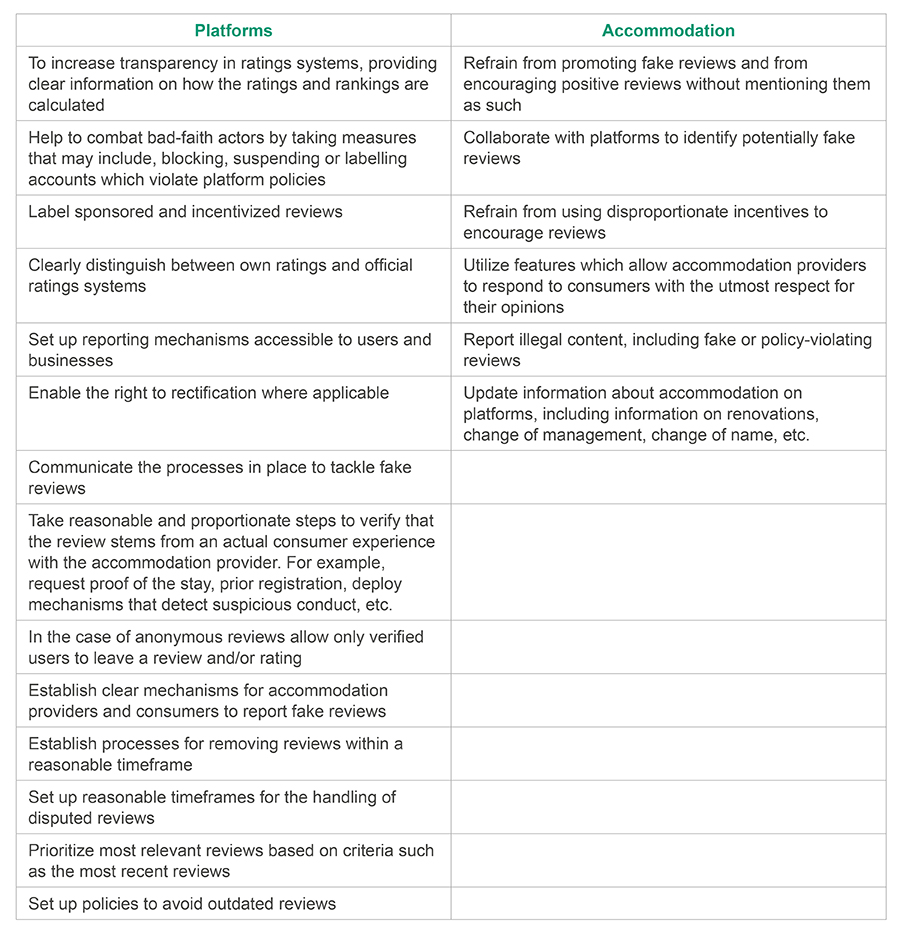The adoption of the Code of Conduct for online ratings and reviews for tourism accommodation constitutes a new step in the fight against fake reviews. This initiative, launched by the European Commission together with digital travel platforms, hotels and consumer associations, aims to achieve greater transparency and reliability of reviews. The objective is to regain consumers’ trust in these ratings mechanisms, so that only verified guests can leave an opinion, with a view to avoiding fake reviews that harm travelers, establishments and platforms alike.
The challenge of fake reviews: once upon a time in London…
In 2017, Oobah Butler, a young British writer for Vice Magazine, put the reliability of online reviews to the test. Using just a laptop he created a fake restaurant: The Shed at Dulwich. Oobah uploaded plates of food created using shaving foam and dishwasher tablets, invented a concept menu and started compiling fake reviews. Several months later, The Shed had become London’s top-rated restaurant.
This viral experiment reveals a worrying phenomenon: the ease with which an online reputation can be manipulated, a phenomenon that is impacting fully on the tourism industry. More than half of European consumers take online reviews into account as a determining factor when choosing a hotel, more so even than the traditional star rating system. Mindful of this, almost 70% of hoteliers consider reviews an essential source of information to manage their establishments.
In this context, the Code of Conduct for online ratings and reviews for tourism accommodation constitutes a step forward for the reliability of reviews of tourism accommodation. The initiative seeks to regain consumers’ trust in the digital tourism ecosystem, through voluntary, yet ambitious commitments by platforms, hotels and associations.
Content and commitments of the code of conduct
The Code establishes a series of principles and best practices that signatories commit to voluntarily, aimed at ensuring the accuracy of reviews and transparency in their management. It is divided into two main blocks: one aimed at platforms and the other at accommodation, with a view to achieving a multilayer strategy to combat the phenomenon of fake reviews. The commitments reached are as follows:

These commitments all seek to improve the reliability of online reviews. The document as a whole, reflects practices that many leading platforms were already applying to a certain extent (such as “verified user” or automated filtering of reviews), but by unifying them in a single code, a higher and more uniform industry standard is established at European level.
Voluntary adhesion and support from the entire industry
The Code is not legally binding and is therefore completely voluntary. By signing, each signatory publicly undertakes to implement the principles agreed and to act in good faith in complying with and promoting the Code. It should be underscored that it is not a formal code in accordance with article 45 of the Digital Services Act, but rather an independent sectoral self-regulation initiative initiated by the Commission. In practice, this means that its violation does not involve direct legal penalties, so its effectiveness will depend on the parties’ actual commitment and on the reputational pressure to adhere to high transparency standards.
Although it is voluntary, the launch of the Code has achieved broad and immediate support from the main stakeholders in the digital tourism industry. Large booking platforms and review sites such as Airbnb, Booking.com, Expedia or Tripadvisor have signed up. HOTREC, the umbrella association representing the European hospitality sector has also embraced its principles. This inspires confidence that both online platforms as well as accommodation owners will move in the same direction.
Supplement to the existing regulatory framework
However, the Code of conduct does not emerge from the ether, but rather supplements and reinforces existing legislation in the EU, which already has several instruments in place that address the problem of fake reviews, including the Digital Services Act, the Digital Markets Act, the so-called P2B Regulation, the User and Consumer Protection Law and even the Unfair Competition Law.
Our experts have already discussed this subject in several publications, exploring the interaction between the different laws that address the problem in Spain and at EU level:
- Fake reviews: A new legal challenge? (2018).
- The corporate right to honor, or how to defend a business from false information (2020).
- Fake reviews: Royal Decree-Law 24/2021 introduces new measures to avoid fake reviews of products and services (2021)
- Reviews, professional reviewers and bot farms: new obligations for online businesses (2022)
It is therefore a code of conduct that continues the work of the EU lawmakers from multiple angles.
A multilayer approach for travelers, hotels and platforms
The implementation of common standards for reliable reviews promises to be beneficial for the entire tourism ecosystem as a whole. To start with, travelers will have more reliable and transparent information when planning their holidays, enabling them to easily differentiate between real and fake reviews. This will help them take more informed decisions and to have greater trust in the descriptions of the accommodation, in that they reflect the actual experience of a real consumer. In addition, hotels and accommodation providers will be able to build their online reputation based on actual experiences, reducing the unfair competition risk posed by misleading reviews. Moreover, genuine reviews provide a valuable incentive to establishments to improve their services and meet their customers’ expectations. Finally, online platforms also shore up their main value to the public as a reliable bridge between supply and demand. In short, confidence in the online market is reinforced, fairer competition is encouraged and the space for fraudulent practices that damage the reputation of the industry overall is reduced.
With this code of conduct, the European Commission exemplifies its support for public-private partnership and responsible self-regulation as a means of improving standards in the digital economy. The initiative supplements and reinforces the new European legislation on transparency and consumer protection. The success of the code will now depend on the level of endorsement by stakeholders and the extent to which signatories apply their commitments. So far, the option is available: it is now up to platforms, hotels and organizations to join the effort to regain trust in online reviews. If the European tourism industry succeeds in consolidating these best practices in general, it will be a huge step towards a more secure, transparent and reliable digital environment.
Partner Intellectual Property Department and Garrigues Digital





